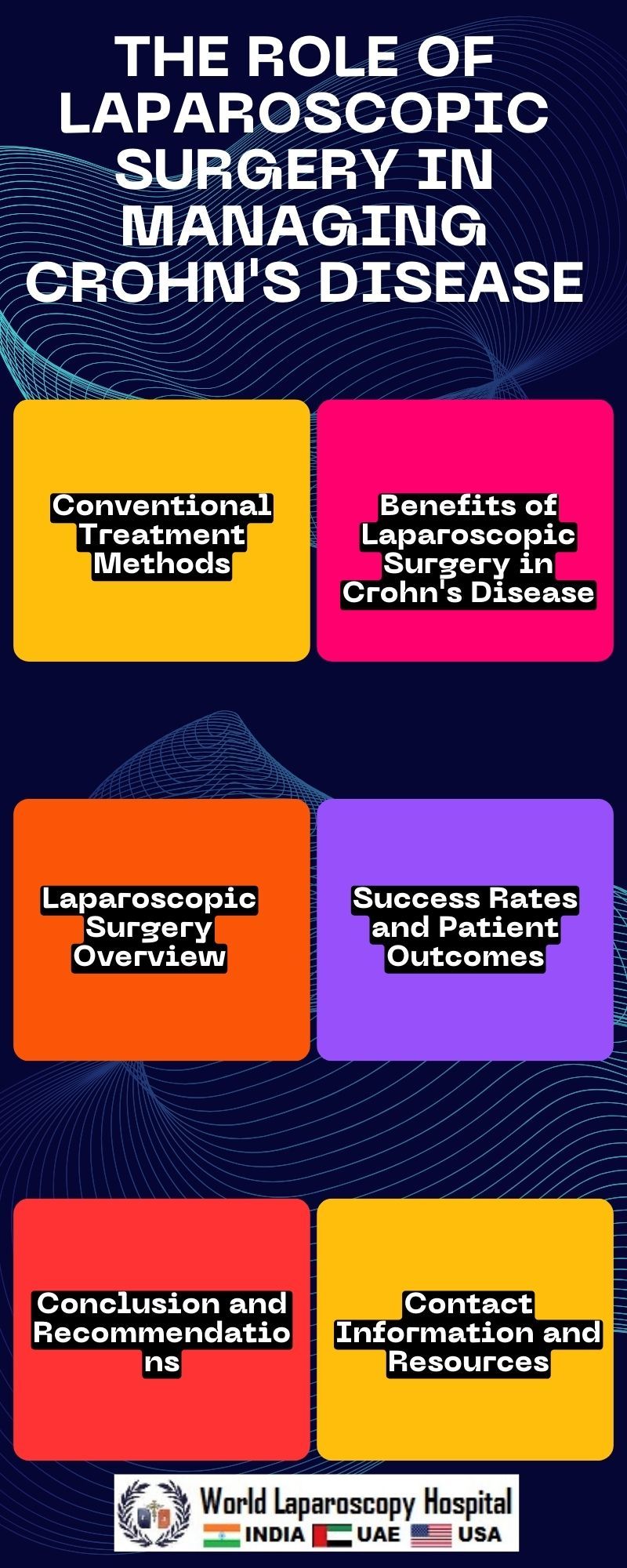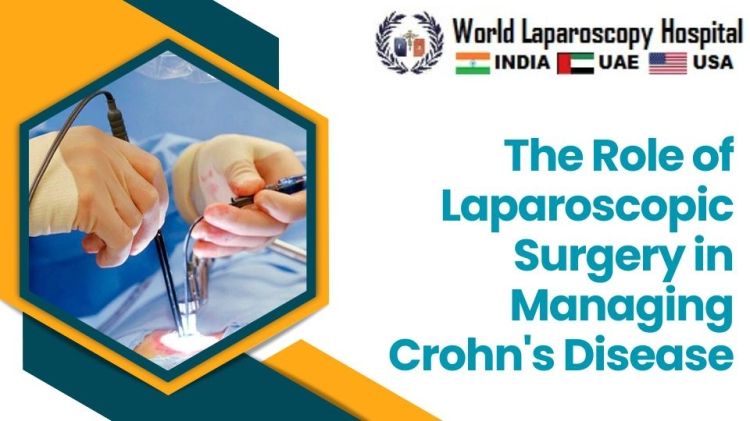The Role of Laparoscopic Surgery in Managing Crohn's Disease
Introduction:
Crohn's Disease, a chronic inflammatory bowel disorder, presents a complex challenge in modern healthcare. As medical science evolves, so do the approaches to managing this condition. One notable advancement in recent years has been the increasing role of laparoscopic surgery in the comprehensive care of individuals with Crohn's Disease. This article delves into the intricacies of Crohn's Disease, explores traditional treatment modalities, and meticulously examines the significance of laparoscopic surgery in its management.

Understanding Crohn's Disease:
Crohn's Disease is a form of inflammatory bowel disease (IBD) characterized by chronic inflammation of the gastrointestinal tract. Its etiology remains multifactorial, involving genetic, environmental, and immunological factors. The condition manifests with a range of symptoms, including abdominal pain, diarrhea, weight loss, fatigue, and complications such as strictures, fistulas, and abscesses.
Traditional Treatment Approaches:
Historically, medical management has been the primary focus for treating Crohn's Disease. Immunosuppressive medications, corticosteroids, and biologics aim to control inflammation and alleviate symptoms. While these interventions provide relief for many patients, they may not address structural complications and may be associated with long-term side effects.
Surgical Intervention in Crohn's Disease:
Surgery becomes a consideration when medical therapy falls short or complications arise. Traditional open surgery has conventionally been employed for resection of diseased bowel segments, addressing strictures, and managing complications like abscesses and fistulas. However, open surgery is associated with larger incisions, prolonged recovery times, and increased postoperative pain.
The Evolution of Laparoscopic Surgery:
In the last few decades, laparoscopic surgery has emerged as a transformative approach in the management of Crohn's Disease. Also known as minimally invasive or keyhole surgery, laparoscopy involves making small incisions through which a camera and specialized instruments are inserted to perform the necessary procedures. This technique has revolutionized surgical care across various medical disciplines and is particularly impactful in the realm of inflammatory bowel diseases.
Advantages of Laparoscopic Surgery in Crohn's Disease:
Minimally Invasive Nature:
Laparoscopic surgery's hallmark advantage is its minimally invasive nature. Compared to open surgery, laparoscopy requires smaller incisions, leading to reduced trauma to surrounding tissues, less postoperative pain, and a quicker recovery.
Faster Recovery Time:
Patients undergoing laparoscopic surgery for Crohn's Disease typically experience a faster recovery compared to traditional open procedures. This is crucial in enhancing overall patient outcomes and improving quality of life.
Reduced Hospital Stay:
The minimally invasive approach often allows for shorter hospital stays, contributing to cost-effectiveness and decreasing the risk of hospital-acquired infections.
Cosmetic Benefits:
The cosmetic benefits of laparoscopic surgery are noteworthy, as the small incisions result in less scarring and a more aesthetically pleasing outcome for patients.
Precision and Visualization:
Laparoscopic surgery provides surgeons with enhanced visualization of the operative field through the use of a camera. This allows for greater precision in performing intricate procedures, especially when addressing complications such as fistulas and abscesses.
Applications of Laparoscopic Surgery in Crohn's Disease Management:
Bowel Resection:
Laparoscopic surgery is commonly employed for bowel resection in Crohn's Disease, where the diseased segment of the intestine is removed, and healthy ends are reconnected. This approach minimizes the need for large incisions and reduces the risk of postoperative adhesions.
Strictureplasty:
In cases of strictures, where a segment of the bowel becomes narrowed, laparoscopic strictureplasty can be performed. This involves widening the narrowed portion without removing any bowel, preserving the length of the intestine.
Treatment of Fistulas:
Laparoscopic surgery is effective in addressing fistulas, abnormal connections between different parts of the intestine or between the intestine and other organs. The minimally invasive approach aids in precise closure of fistulas, promoting faster healing.
Abscess Drainage:
For patients with Crohn's Disease complicated by abscess formation, laparoscopic drainage is a valuable intervention. It allows for the controlled drainage of abscesses and the removal of infected material, contributing to a more targeted and efficient resolution.
Challenges and Considerations:
While laparoscopic surgery holds significant promise in the management of Crohn's Disease, several factors influence its applicability. Disease complexity, the presence of dense adhesions, and the need for extensive resection may pose challenges to laparoscopic techniques. Surgeon expertise and the availability of advanced equipment also play crucial roles in determining the success of laparoscopic interventions.
Patient Selection Criteria:
Appropriate patient selection is paramount for the success of laparoscopic surgery in Crohn's Disease. Factors such as the patient's overall health, the extent of disease involvement, and the presence of complications influence the decision-making process. Collaborative efforts between gastroenterologists and surgeons are essential in identifying candidates who will benefit most from a laparoscopic approach.
Future Directions and Innovations:
The landscape of Crohn's Disease management is continually evolving, and ongoing research explores novel techniques and technologies to further enhance the role of laparoscopic surgery. Robotic-assisted laparoscopy, three-dimensional imaging, and advancements in surgical instruments hold promise for refining the precision and outcomes of laparoscopic procedures.
Conclusion:
Laparoscopic surgery has emerged as a transformative force in the management of Crohn's Disease, offering patients a less invasive and more efficient approach to address the complexities of this chronic condition. As technology continues to advance and surgical techniques evolve, the role of laparoscopic surgery in the comprehensive care of individuals with Crohn's Disease is likely to expand, providing new avenues for improved outcomes and enhanced quality of life.






